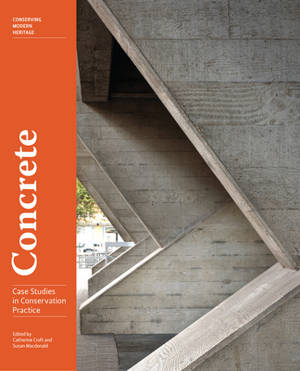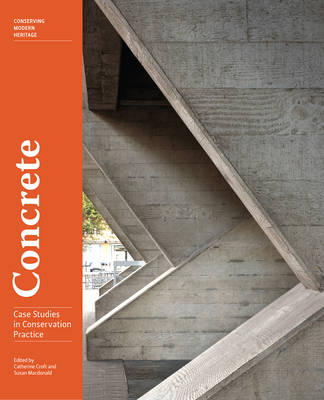
Wil je zeker zijn dat je cadeautjes op tijd onder de kerstboom liggen? Onze winkels ontvangen jou met open armen. Nu met extra openingsuren op zondag!
- Afhalen na 1 uur in een winkel met voorraad
- Gratis thuislevering in België vanaf € 30
- Ruim aanbod met 7 miljoen producten
Wil je zeker zijn dat je cadeautjes op tijd onder de kerstboom liggen? Onze winkels ontvangen jou met open armen. Nu met extra openingsuren op zondag!
- Afhalen na 1 uur in een winkel met voorraad
- Gratis thuislevering in België vanaf € 30
- Ruim aanbod met 7 miljoen producten
Zoeken
€ 96,95
+ 193 punten
Omschrijving
This timely volume brings together fourteen case studies that address the challenges of conserving the twentieth century's most ubiquitous building material--concrete. Following a meeting of international heritage conservation professionals in 2013, the need for recent, thorough, and well-vetted case studies on conserving twentieth-century heritage became clear. Concrete: Case Studies in Conservation Practice answers that need and kicks off a new series, Conserving Modern Heritage, aimed at sharing best practices. The projects selected represent a range of building typologies, building uses, and project sizes, from the high-rise housing blocks of Le Corbusier's Unité d'Habitation and public buildings such as the London's National Theatre to small monuments such as the structures at Dudley Zoological Gardens and a sculpture by Donald Judd. The projects also represent a range of environmental and economic contexts. Some projects benefit from high levels of heritage protection and access to funding, while others have had to negotiate conservation with stringent cost limitations. All follow a rigorous conservation approach, beginning with a process of investigation and diagnosis to identify causes and target repairs and balancing these with conservation requirements to preserve significance. Written by architects, engineers, conservators, scholars, and other professionals in the field, these highly detailed and well-illustrated studies demonstrate sound practice, rigorous methodology, and technological innovation and represent the vibrancy of the field as it stands today. This book has something to offer anyone interested in the conservation of modern heritage.
Specificaties
Betrokkenen
- Uitgeverij:
Inhoud
- Aantal bladzijden:
- 208
- Taal:
- Engels
- Reeks:
Eigenschappen
- Productcode (EAN):
- 9781606065761
- Verschijningsdatum:
- 29/01/2019
- Uitvoering:
- Paperback
- Formaat:
- Trade paperback (VS)
- Afmetingen:
- 213 mm x 267 mm
- Gewicht:
- 861 g

Alleen bij Standaard Boekhandel
+ 193 punten op je klantenkaart van Standaard Boekhandel
Beoordelingen
We publiceren alleen reviews die voldoen aan de voorwaarden voor reviews. Bekijk onze voorwaarden voor reviews.










